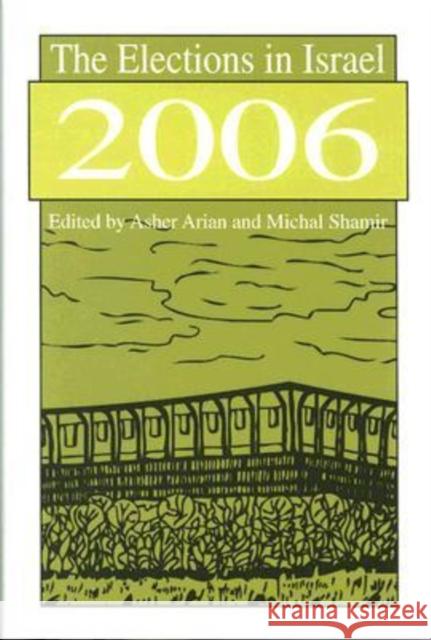The Elections in Israel 2006 » książka
The Elections in Israel 2006
ISBN-13: 9780765803887 / Angielski / Twarda / 2008 / 344 str.
The Elections in Israel 2006
ISBN-13: 9780765803887 / Angielski / Twarda / 2008 / 344 str.
(netto: 440,37 VAT: 5%)
Najniższa cena z 30 dni: 428,13
ok. 16-18 dni roboczych.
Darmowa dostawa!
The Elections in Israel--2006 brings together leading Israeli and North American social scientists and their state-of-the-art, in-depth analysis of the 2006 Israeli national elections. The 2006 elections occurred soon after the unilateral withdrawal of Israeli settlers and the army from the Gaza Strip and the departure of Prime Minister Ariel Sharon from active politics due to a massive stroke. Sharon had engineered the withdrawal from Gaza. The policy brought about a split in his ruling Likud party, and Sharon led his group to coalesce with other groups (including Labor's Shimon Peres) to form a new party, Kadima. For the first time in Israeli political history, a party of the ideological center was poised to be the top vote getter. Kadima's victory ensured the accession of Ehud Olmert, who became Israel's new prime minister. Labor, too, had fielded a new leader in the person of Amir Peretz, a former head of the country's Histadruth labor union; he attempted to focus the campaign on social and economic issues, but the campaign reverted back to security and foreign affairs. Ironically, in the post-election government, Peretz was given the post of defense minister. Likud was unable to recover from the departure of Sharon and other leaders. Its leader. The 2006 elections also saw a precipitous drop in voter turnout compared to previous elections. Parties and politicians were plagued by low levels of trust on the part of the electorate and revelations of corruption were rife. The Arabs and the religious Jewish parties each faced challenges in retaining their strength in the electorate and in the governing coalition. This volume also illuminates developments and changes in Israeli society and politics. Many of these developments--multiculturalism, changes in social stratification, sinking turnout, growing mistrust of political institutions, and political reforms--characterize other Western democracies as well, and these are discussed from a comparative global perspective. The Elections in Israel--2006 will also be of particular interest to those concerned with comparative politics and elections in general.











